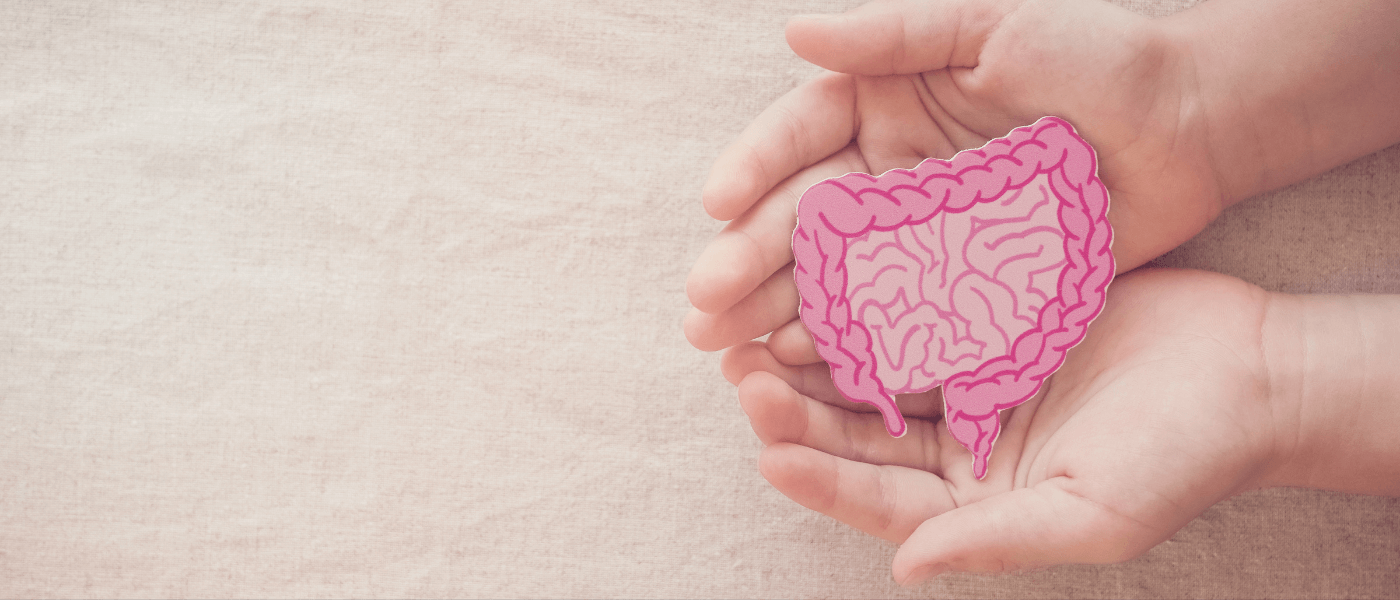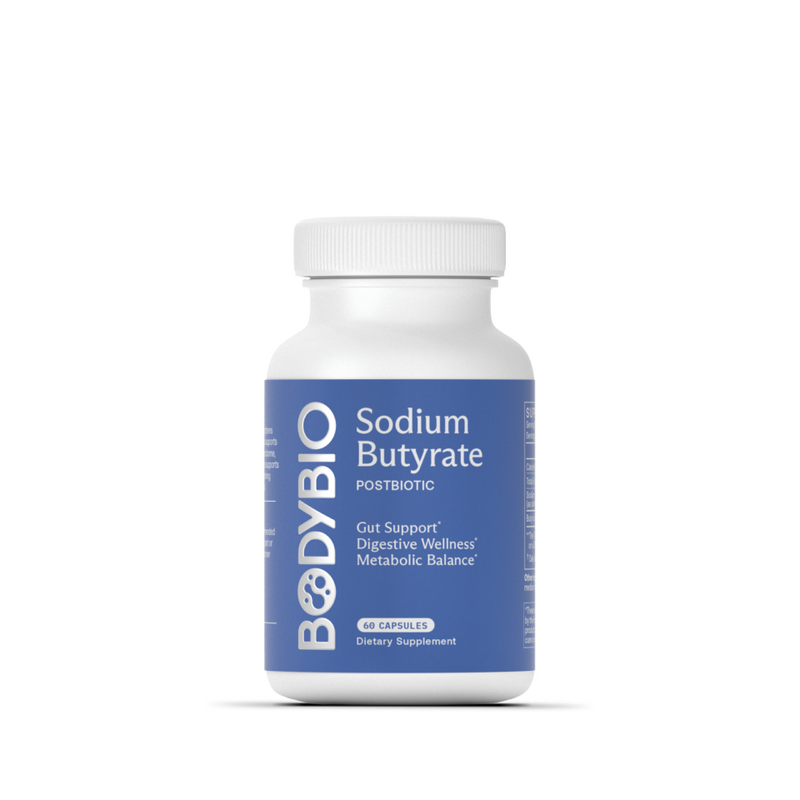7 Legit Hacks to Heal Your Gut and Feel Your Best
We might be biased, but it seems like in the last few years the integrative medicine obsession with gut health has nearly gone mainstream. Probiotics, juice cleanses, bone broth, and other gut healthy foods, recipes, and supplements are more popular than ever. But are they always the answer to improve gut health naturally? In this article, we’ll break down 7 legit hacks to heal your gut – and they aren’t all about your diet.
Table of Contents:
- Gut Health and Your Microbiome
- Unhealthy Gut Signs and Symptoms
- How to Improve Gut Health
- Eat More Foods with Butyrate
- Seriously Lower Stress
- Use Probiotics Strategically
- Use Antimicrobials with Caution
- Rub Some Dirt on It
- Sleep Like It’s Your Job
- Fasting Isn’t Always Right for Everyone
- Restore Your Gut Health
The Importance of Gut Health and Your Microbiome
If you’re reading this article right now, odds are pretty good you have at least some idea of just how incredibly important your microbiome and your gut health are for your overall wellbeing. (We know our audience has some of the most curious, health-minded folks around!) But everyone could do with a refresher now and again, so as a reminder, here are some of the many things your gut and microbial community do for you, their gracious host.
- Probiotic bacteria digest your food and turn prebiotic fiber into postbiotics, like short-chain fatty acids and vitamins.
- A healthy microbiome protects the gut environment from invading pathogens that enter the body on your food and drink.
- A healthy microbiome produces neurotransmitters that affect your mood and nervous system operations.
- Postbiotics protect the gut lining, so that nutrients are absorbed well and waste particles are kept out of the bloodstream.
- The gut holds 70% of our immune system.
And this is really just hitting a few highlights on the gut and microbiome. The ecosystem of the gut serves as one of the most interconnected networks to the health of the whole body.
Signs and Symptoms of an Unhealthy Gut
So when something begins to go awry with our gut health, it isn’t long until digestive symptoms begin to add up, along with mental health challenges, decreased brain function, hormonal imbalances, and more. You might notice:
- Bloating, gas, diarrhea, constipation, abdominal discomfort/pain, or any combination of these
- Food intolerances
- Fatigue
- Depression
- Anxiety
- Mood swings
- Irregular menstrual cycles
- Brain fog
- Lack of resilience to stress
- Low energy
- Low motivation.
An unhealthy gut can truly impact you on a multi-system level. Fortunately, that also means that we can take big steps toward healing by improving our gut health.
How To Improve Gut Health
Improving gut health begins with a healthy diet. So we’re skipping over that one this time, because we’re betting you already know all about avoiding gluten, eating lots of fruits and vegetables, getting more fiber in your meals, and making sure to get enough protein. Like we said before, you’re not any old Joe Schmoe who eats cardboard box pizza three times a week.
When you have serious gut issues – or you're just taking your gut health seriously – it can be the extra practices you put in place after your diet is locked in that make the biggest difference. We’re talking stress, sleep, probiotics, antimicrobials, and more. Let’s dig into these seven tips for a healthier gut.
Eat More Foods With Butyrate
…Or foods that help your probiotics make butyrate in the gut. And ok, this is technically diet-related. But just because you eat a Paleo or Keto diet doesn’t mean you’re automatically getting all the butyrate your gut needs. In fact, it’s highly unlikely that you are.
Butyrate is a gut-healing short-chain fatty acid produced by certain types of bacteria in the large intestine. It has many wonderful uses, including protecting and nourishing the gut lining (bye bye leaky gut!) and supporting the immune system [1].
Our gut bacteria mostly make butyrate in house, but we can get it from certain food sources as well. Dairy products (preferably grass fed) like butter and parmesan cheese contain small amounts of butyrate.
Of course, dairy is a no go for many of us, so in that case, reach more for butyrate-producing foods like cold, cooked rolled oats, legumes, potatoes, and rice. The cooking and cooling process makes these foods a type of fiber called resistant starch, which butyrate-producing bacteria love to munch on.
Seriously Lower Stress
Seriously! With work, families, and the many obligations of modern life, taking time to actively slow down our breathing, go for a walk, practice yoga, or sit down for a quiet meditation often gets pushed to the side.
But the gut is incredibly sensitive to stress, and digestive issues and fatigue are often signs that your body is feeling that stress, even if you aren’t consciously aware of it [2]. Stress management has to take priority if gut healing is going to occur.
Find ways to disconnect your brain and ground into your body, whether that’s breathwork, exercise, or an enjoyable hobby you love. Life is too short to spend it worrying and ruminating.
Use Probiotics Strategically
Probiotics have been touted as a gut health cure-all for many years now. And we can’t deny that they have earned their place and have the research to back up their usefulness [3, 4].
However, the “throw it at the wall and see what sticks” approach often used with probiotics may end up being more harmful down the road for some people, especially critically ill people or those with autoimmune disease [5, 6].
If you’re interested in incorporating probiotics into your daily routine, we suggest working with a practitioner who can use clinical evaluation and testing to identify which strains may be most helpful for you.
Use Antimicrobials With Caution
Antimicrobials – usually herbs with the ability to kill bacteria, fungi, parasites or all of the above – are another popular holistic treatment option for addressing bad microbes that have set up shop in the gut [7]. These medicinal plants and herbs, such as artemis, berberine, and even peppermint, can kill off everything from candida to roundworms when used properly.
But if you go too hard too fast, you might get a die-off reaction, which is what happens when a whole bunch of bad bacteria or microbes die and release toxins into the gut and then the bloodstream. You might experience a worsening of your current symptoms, or you might feel like you caught the flu. Either way, pushing your body and immune system too hard only makes you more susceptible to the same or different bad bugs taking the place of the ones you just killed off.
We recommend the same strategy here as with probiotics – find a practitioner who can recommend an antimicrobial regimen specific to your microbiome’s needs. And always listen to your body! If you feel worse on antimicrobials, back off on the dose or stop completely until you feel like you can handle them again.
Rub Some Dirt on It
Getting your hands (and feet) outside in the dirt can actually help your microbiome become more diverse and resilient [8]. Gardening, playing around the yard with the dog or the kids, mud wrestling – it’s all fair game for boosting your microbial army.
We have tons of research showing that spending time in nature is extremely stress-relieving, too, so planting some flowers in your backyard is like a two-for-one gut therapy [9, 10].
Sleep Like It’s Your Job
Ah, sleep. For many of us, it’s a daily challenge – trouble falling asleep, staying asleep, and getting enough hours are all-too-common issues. But maybe that’s because we’re approaching sleep wrong, or we’re not really making a commitment to our sleep. We love a good Netflix drama as much as the next person, but when watching right before bed keeps your mind racing as you toss and turn, is it really worth it?
And yes, less sleep or disrupted sleep = an unhappy gut. A 2020 study on sleep, circadian rhythm, and the microbiome states that sleep fragmentation and short sleep duration are associated with gut dysbiosis [11].
Here are just a few sleep hygiene tips:
- Keep your home lighting low at night, preferably from table lamps or candles (not overhead lighting).
- Create a bedtime routine at least one hour before lights out – this trains your body to release stress from the day and prepare for sleep.
- Use earplugs, blackout curtains, and/or a sleep mask to block out stimuli that might cause you to wake up during the night.
Fasting Isn’t Always Right for Everyone
Probably not the fasting advice you were expecting, right? Fasting, whether intermittent fasting or longer term fasting, has become a popular strategy to give the gut a rest from digesting food. The idea is that, when it doesn’t have to mobilize the digestive process, fasting allows the gut to perform cellular housekeeping and heal inflamed tissues.
For many people, this is a perfectly sound strategy. But we have to caution that not everyone does well with fasting, especially when they are already low on essential nutrients or have active disease, such as IBD patients. Women should also be careful with any kind of fasting, since it can disrupt hormones and increase cortisol (stress hormone) [12, 13].
Sometimes, the gut actually needs a higher nutrient intake to heal, rather than deprivation. Focusing on vitamin and mineral-dense yet easy-to-digest foods like smoothies, soups, well-cooked vegetables and fruits, and low and slow-cooked meats may be more healing to the gut and the body overall.
Restore Your Gut Health Today
Healing the gut takes a multi-pronged approach, incorporating restful deep sleep, stress relief, healing foods, and sometimes strategic supplements like probiotics, antimicrobials and butyrate. It also takes time, patience, and being kind to yourself as you make progress and mistakes along the way. But it is possible! You have the power to change your lifestyle to one that supports your gut health and your overall wellbeing.
Check out the gut healing power of BodyBio Butyrate here.



